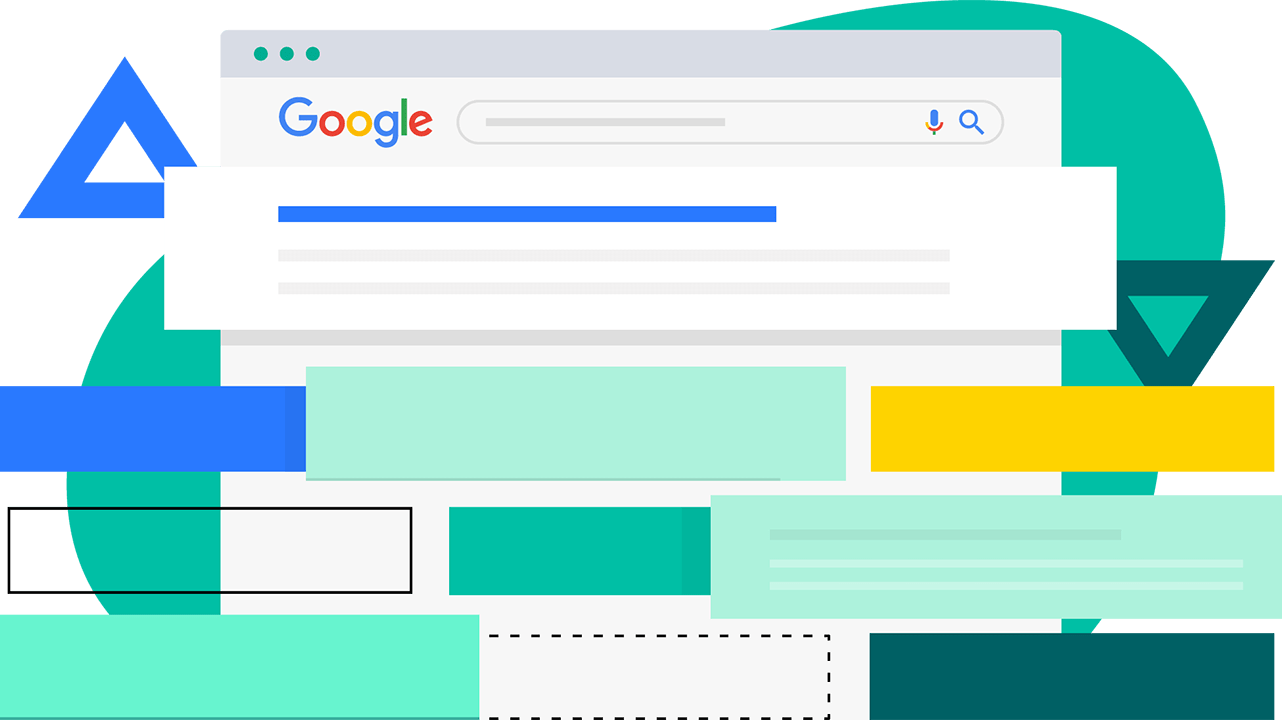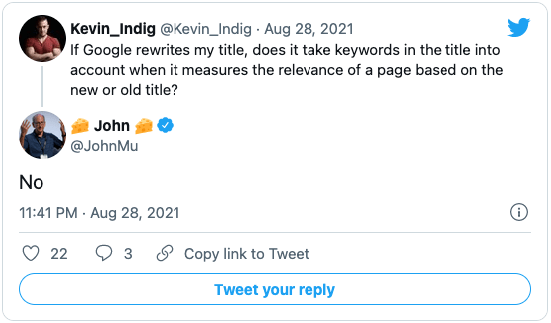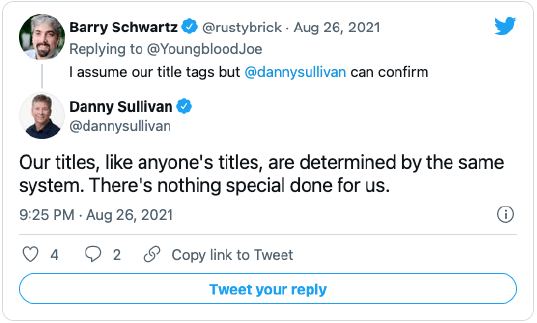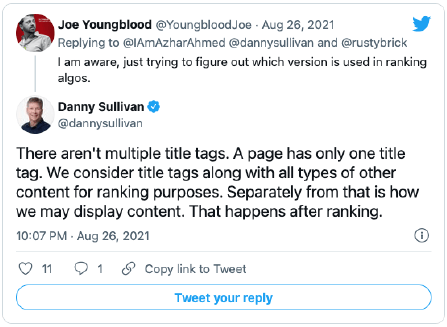Google’s Title Rewrite Update: What it is and how it affects your SEO

On August 17th, 2021, many SEO professionals and website owners noticed a significant change in the way Google displays page titles. Instead of using meta title tags, Google started using header tags (H1s and H2s) to display titles in the search results. This change has led to confusion and concern among many website owners and SEO professionals, as they are not sure what impact it will have on their rankings. Below are some of the public mentions & the answers from Google and other SEO professionals.
From the above posts, we can confirm that your rankings are definitely not affected by this update (at least for now)!! Its only purpose is to make your titles more readable and precisely describe your document’s content. This new system is preferred by the users, as they can connect with the page content easily. Many people wanted Google to explain more about this update, so there were many comments related to this topic. Google’s staff answered their queries in this official post.
Will the Title Rewrite Update Aaffect your Rankings?
The good news is that Google’s title rewrite update won’t affect your rankings. Google has confirmed that title tags are still considered for rankings and that this update is solely intended to improve the readability and accuracy of titles in the search results. While this update may cause some initial confusion and concern, website owners and SEO professionals should focus on creating great title tags with a focus on target keywords, as they always have.
The Pros and Cons of using Header Tags for Titles
While Google’s title rewrite update has been met with some confusion and concern, there are some advantages to using header tags for titles. Header tags provide a clear hierarchy of information on a page, making it easier for users to navigate and understand the content. Additionally, header tags can be used to add semantic value to the page and help Google better understand the content. However, there are also some drawbacks to using header tags for titles, such as the potential for keyword stuffing or overuse of header tags.
How to Optimize your Titles for Google’s Title Rewrite Update
Even though Google’s title rewrite update won’t affect your rankings, it’s still important to optimize your titles for the new system. To do this, focus on creating descriptive and accurate titles that use header tags to provide a clear hierarchy of information. Include your target keywords in your H1 and H2 tags, as well as in your meta title tags, to ensure maximum visibility in the search results. Finally, monitor your rankings and adjust your strategy as needed to stay competitive in the search results.
The Future of Title Tags in SEO
As Google continues to refine its search algorithm and make changes to the way it displays search results, it’s important for website owners and SEO professionals to stay up-to-date on the latest developments. While title tags are still an important factor in SEO, it’s possible that Google may make further changes to the way it displays titles in the future. By staying informed and adapting to these changes, website owners and SEO professionals can continue to stay ahead of the competition in the search results.
Conclusion
Google’s title rewrite update may have caused some initial confusion and concern among website owners and SEO professionals, but it ultimately won’t affect their rankings. By focusing on creating great title tags with a focus on target keywords and using header tags to provide a clear hierarchy of information, website owners and SEO professionals can optimize their titles for the new system and stay competitive in the search results. While the future of title tags in SEO may be uncertain, staying informed and adapting to changes as they come will be key to staying ahead of the competition.
Anna Amstill
I am an avid Blogger and Writer with more than 6 years of experience with Content Writing. An Online Marketing expert specializing in Blog writing, Article writing, Website content, SEO specific Keyword content and much more. Education B.A. - business management, York University, Canada, Graduated 2016.
Recommended Posts

Digital Marketing in Malta – A DIY Guide
May 16, 2024

iGaming: European Gaming Congress 2024
May 14, 2024

Malta Hosts CasinoBeats Summit 2024
May 14, 2024







